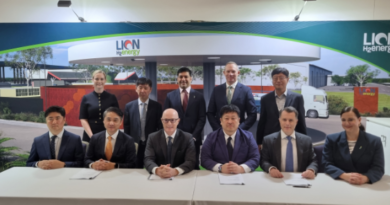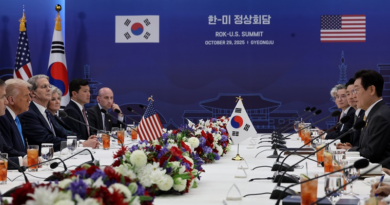President Lee Jae-myung: “The Korea-U.S. Alliance to Evolve into a Future-Oriented Strategic Partnership Anchored on Security, Economy, and Technology”
During his visit to the United States on the 25th (local time), President Lee Jae-myung delivered a policy speech at the Center for Strategic and International Studies (CSIS) in Washington, D.C. He stated, “In my summit meeting with President Donald Trump, we agreed to modernize the Korea-U.S. alliance in line with changes in the security environment. Together, we will open a new horizon for a ‘practical alliance centered on national interests.’”

Modernizing the Alliance and U.S. Forces in Korea
President Lee outlined modernization measures including an expanded role for the South Korean military, increased defense spending, and the transfer of wartime operational control. At the same time, he stressed that “the U.S. security commitment to Korea and the combined defense posture will remain rock solid,” drawing a clear line against concerns that Korea’s expanded role might reduce the presence of U.S. forces.
He further emphasized that the alliance would expand beyond the Korean Peninsula to a global dimension, adding, “The 28,500 U.S. troops stationed in Korea will become even more secure.” By explicitly mentioning the current troop level, he countered ongoing speculation about possible reductions.
Defense Spending and Military Modernization
Lee pledged to increase defense spending, noting that “the additional budget will be used to develop our military into a smart and strong force.” While he did not specify the scale, the commitment aligns with long-standing U.S. demands.
North Korea’s Nuclear Threat and Denuclearization
On the North Korean nuclear issue, President Lee said he and President Trump agreed to work closely for peace and denuclearization on the peninsula. He warned that North Korea had nearly completed its ICBM program and expanded its nuclear arsenal by 2.5 times since 2022.
Lee reaffirmed Korea’s adherence to the Nuclear Non-Proliferation Treaty (NPT) and non-nuclear commitments, urging Pyongyang to uphold its obligations as well.
A Dual Track on North Korea: Pressure and Dialogue
Lee stressed that South Korea and the United States would respond firmly to provocations, but cautioned against relying solely on suppression. “A poor but aggressive neighbor cannot be managed by coercion alone; appropriate measures for control and dialogue are also necessary,” he said. He emphasized that reconciliation and cooperation would benefit both Koreas, as well as the Korea-U.S. alliance.
Trilateral Cooperation with Japan and Relations with China
Regarding Japan, Lee stated, “Japan is an indispensable partner in building a new chapter of the Korea-U.S. alliance. Together with President Trump, we will reinforce trilateral cooperation to jointly counter North Korea’s nuclear and missile threats.”
On China, Lee noted that Korea could no longer maintain the old policy of relying on the U.S. for security and China for economic ties. He explained, “With global supply chains being reshaped between the free world and China, and with U.S. policies clearly aimed at countering Beijing, Korea cannot act outside this framework. Our relationship with China will be managed at a necessary and practical level as a close neighbor.”
Closing Remarks
Concluding his address, Lee characterized the bilateral relationship as “a future-oriented comprehensive strategic alliance built upon three pillars: security, economy, and advanced technology.” He ended with the words, “Let us move forward together.”
[Editor Miso]








